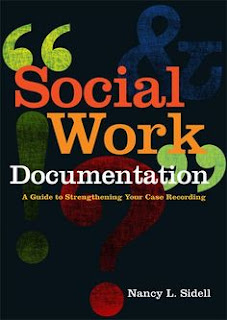Types of Record

"If you didn't write it down, it didn't happen." The statement shows the power of documentation or recording or reporting in any field. And especially in social work, where we deal with individuals, families, groups and communities, they all are different from previous case that might be in nature, cause, process and so on. And the recording of each and every event with clients can be used for the future reference in sorting out the problems of client. Image is taken from google.com Types of Record 1. Process Record 2. Problem Oriented Record 3. Summative Record 4. Diagnostic Summary 5. Goal Oriented Recording 6. Narrative Recording 7. Role Recording 1. PROCESS RECORD · Process record is one method by which you can record the conte...
